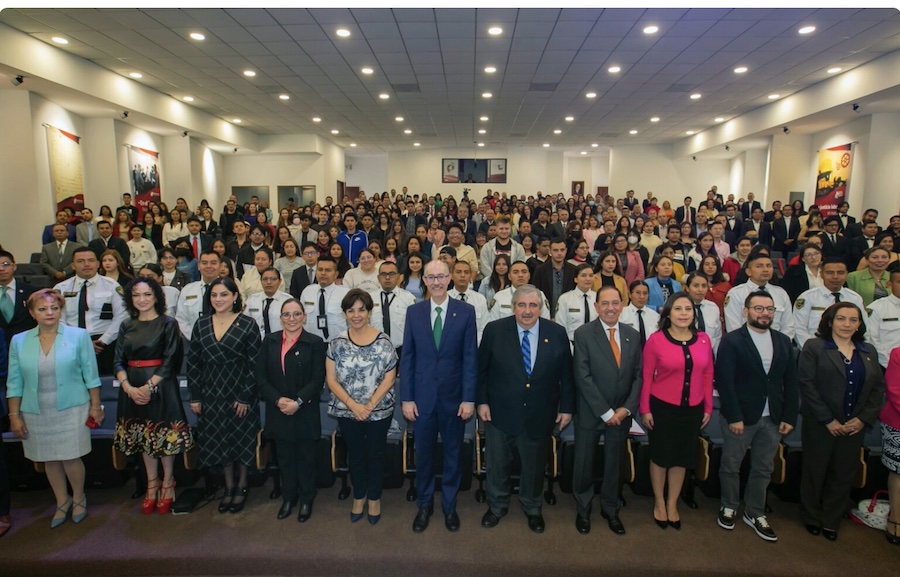… EDUCATION FOR PEACE …
An article from Capitale México (translation by CPNN)
Today, more than ever, it is vital to remember and value the importance of generating a culture of peace in our society, stated the rector of the Autonomous University of the State of Mexico (UAEMéx), Carlos Eduardo Barrera Díaz. Along with the president of the Superior Court of Justice of the State of Mexico, Ricardo Sodi Cuellar, he awarded of the First State Oratory Contest for the Culture of Peace, closing the “Week of Access to the Culture of Peace.”

In the Aula Magna “Licenciate Magistrate Gustavo A. Barrera Graf”, the rector emphasized that peace is the construction of a coexistence based on respect, understanding, tolerance and empathy. “Peace is achieved when we recognize our interdependence and commit to treating others with dignity and fairness,” he said.
(Article continued in right column)
Mediation as a tool for nonviolence and culture of peace
Is there progress towards a culture of peace in Mexico?
(Article continued from left column)
He highlighted that the collaboration between the Judiciary of the State of Mexico and the UAEMéx was essential to make this event possible and urged those present to continue building bridges and promoting peace in all areas of our lives.
In his turn, Ricardo Sodi Cuellar celebrated that the university offers a Bachelor’s Degree in Alternative Conflict Resolution, since building peace is the most important desire of any society.
“Mediation is a fine, elegant art, where people learn through the mediator, who is the one who facilitates this aspect, to build the foundations for peace, to resolve a conflict. This is important because society always has conflicts and the way in which we resolve them will bring us closer to or further away from peace,” said the magistrate.
In his turn, Judge Enrique Víctor Manuel Vega Gómez stressed that in order to talk about building a culture of peace, one depends on the involvement of society.
He asserted that holding this event, in which the Universidad Mexiquense de Seguridad also participated, is a way of leading youth towards the creation of a participatory democracy, that promotes peace.
The director of the Faculty of Law, María José Bernáldez Aguilar, pointed out that the combination of efforts between state institutions is essential for the construction of a solid and lasting culture of peace.
By joining forces, she said, we demonstrate that building a culture of peace is not an individual task but a joint effort that requires the active and committed participation of all institutions and social actors. “It is through this collaboration and teamwork that we can lay the foundation for a more peaceful and just future,” she said.